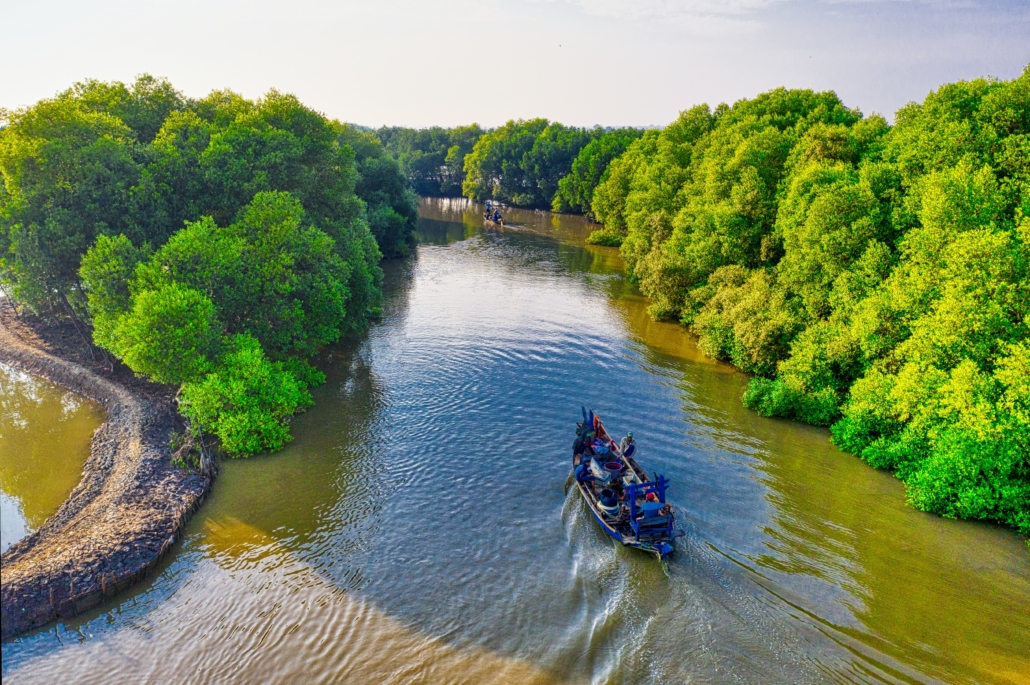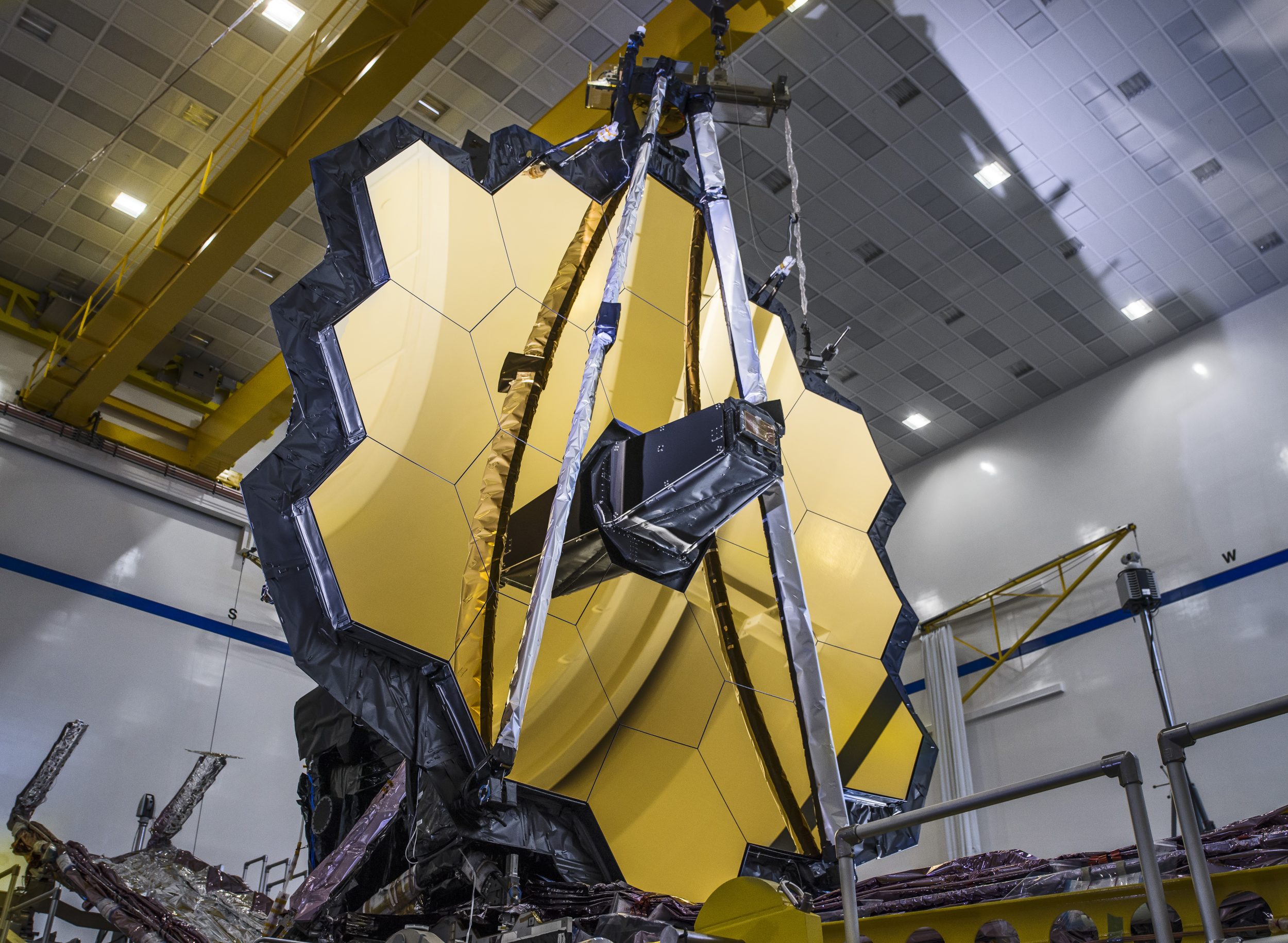
An ecosystem (or ecological system) consists of all the organisms and the physical environment with which they interact. These biotic and abiotic components are linked together through nutrient cycles and energy flows. Energy enters the system through photosynthesis and is incorporated into plant tissue. By feeding on plants and on one another, animals play an important role in the movement of matter and energy through the system. They also influence the quantity of plant and microbial biomass present. By breaking down dead organic matter, decomposers release carbon back to the atmosphere and facilitate nutrient cycling by converting nutrients stored in dead biomass back to a form that can be readily used by plants and microbes.
(emphasis mine)
I started with this to emphasize the importance of ecosystems to sustain ideas. In AI, you need an ecosystem of ideas, software and hardware; chips that function and process the information in real time. In defence, you need the ecosystem to manufacture arms. In academia, you need the ecosystem of mentorship and pathway to publication (and possibly glory). Everywhere a rich ecosystem (and extrapolating to sociological trends), we benefit from tapping into rich ecosystems to gain from services or at a fundamental level, just allow the economy to function.

The keys to the ecosystem (and participation in individual and ecosystem growth) are primarily gatekeepers. You need a specific level of credibility to establish yourself in the “ecosystem”, and it becomes particularly difficult (if not impossible) to break the “chicken-and-egg” situation of putting your ideas in practice and “innovating” to produce “results”. Specific geographies, like the Americas’, encourage a funded level of “innovation”, even though I come across numerous Twitter posts around the system being “broken”. From a developing countries’ perspective, there is no equivalent system to nurture the scientific endeavours in the first place. This great divide (and in addition being risk averse) with onerous immigration requirements causes a drag on innovation.

It is hard to pin down innovation – there’s no specific definition that can have broad generalisability. Innovation in medicine is ever scarcer. Although pharmaceutical companies may announce a pipeline of new therapies to combat cancer, they represent a pail of water trying to douse a raging jungle fire. Solutions to vexed problems (like preventive healthcare) lie in reducing obesity rates (for example) and consequently, better returns on investment with healthy eating habits in communities. However, it has become politically expedient to avoid specific terms like “fat” with a perverse correlation of “body shaming”.

So how could science make any progress without stepping on eggshells, without political correctness, and finding its mojo? Fundamental issues plaguing it are simple – publishing bias and dancing to “fit data” to impress “peer-review”. Grants depend on proximity to committees, ensuring that ideas don’t upset the apple cart and how much you are part of the ecosystem. Publication in a “major science” journal with numerous citations and collaborative frameworks remains the cornerstone for judgement of your “academic merits”.
I stumbled on this interesting post from Atlantic:
Silicon Valley’s New Obsession: Science Funding – The Atlantic
This career path, ludicrous in business, is familiar to a modern academic: Get a bachelor’s degree, get a Ph.D., complete a postdoc or two, hope to join a university as an assistant professor, and then apply for funding from government agencies that might be biased against your best ideas anyway. Such a laborious process may arguably be necessary for filling young academics with the appropriate knowledge to practice or research in their field, but it also unquestionably holds young people back.
(emphasis mine)
The author misses the “lottery system” prevalent in the ecosystem. Yes, there are numerous people who’d do anything for a tenure, but the University system is essentially broken too. Yet, universities (and academia) also represent the finest examples of an ecosystem.

How do you break the egg, crack it and nurture it? By practical application of science ideas with a clear end goal. It is essential to produce (and fund) curiosity driven research, often with no clear specific end-goals. Yet, systems biology can yield so much. The pandemic has focused attention on competing priorities and “funding crunch”. Do we need another PhD in “English literature” to understand Shakespeare’s sonnets or push the boundaries of “cultural renaissance”? Or do we need research to understand the complex interplay of obesity, cancer, and preventive healthcare by behavioural shaping. Health problems can become acute for the next generation, who are exposed to ideas of “universal basic income” and thus reduce the incentive to either learn or “push themselves”.
Ecosystems need to evolve. I have concluded from my numerous failed attempts to understand the complex intersection of technology and healthcare that funding is required to keep interests aligned for actionable end-goals and clear mechanisms for communication to various stake-holders. Science funding alone is not a panacea to address biological warfare (like engineered novel coronaviruses emanating from China), and requires a different multipronged approach. Yet, it has forced us to look deep in these catacombs and address the bureaucratic lethargy inherent in complex and large ecosystems. The best way is to allow profusion of ideas and “competitive disruption” by allowing reproducible and open access science. p-metrics alone will have a limited impact. Space research, as an illustrative example, is actionable science. You need better rockets and faster ones to push higher payloads. The recent launch of James Webb telescope as a marvel of engineering and collaboration to replace venerable Hubble is clear. Even with the cost overruns, it costs seventy times less than the entire defence outlay of the US defence budget (which is another example of “defence ecosystem”).

It can be difficult to break through these ideas of ecosystems, and it can be expensive (and time consuming) to create one from a scratch. Yet, despite promises of doing something “different” each time, I have witnessed genuine intentions falling in the classic “idea traps”. There are promises to sponsor “novel research”, but most curiosity driven fundamental usually ends up in a failure. Scientific progress happens by allowing an ecosystem of entropy instead, which allows for an “eureka” moment. For most others, an application driven ecosystem gives the best returns on investment.
